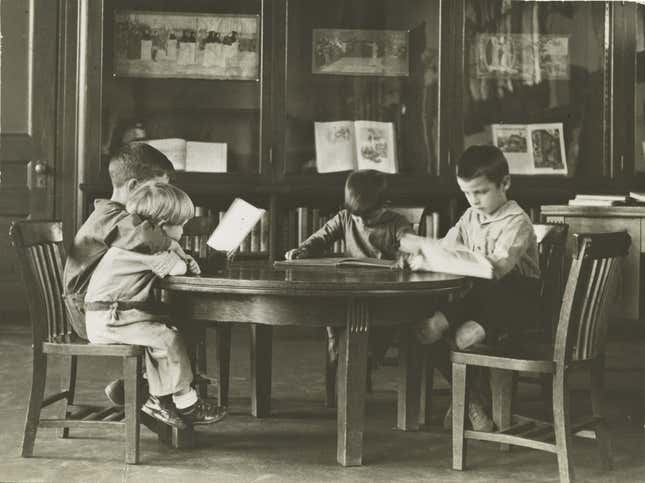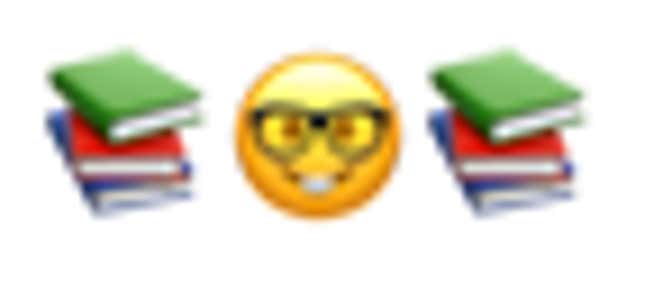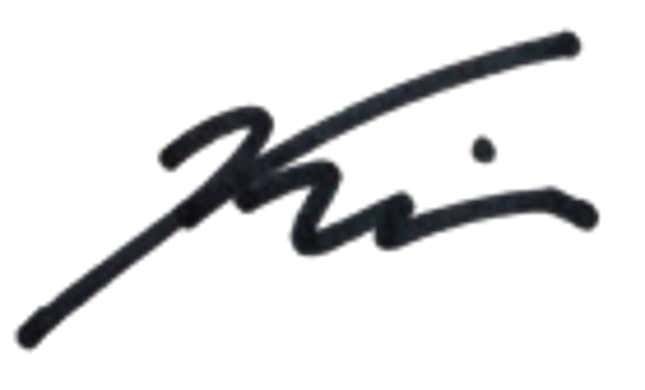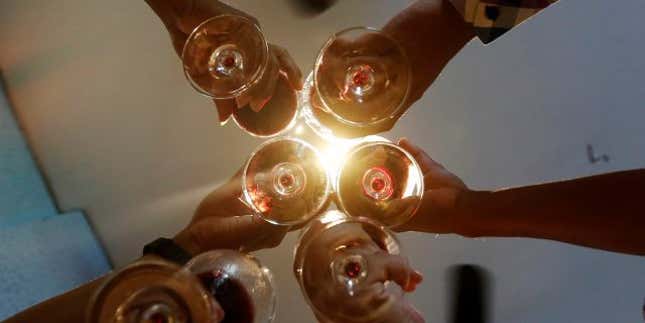
Happy Friday!
I’m Kira Bindrim, Quartz’s managing editor.
As an avid reader and lapsed book blogger, I am often asked for book recommendations and library-organization schemes (my shelves are organized by color, don’t @ me). But sometime over the 2010s, more and more of my December literary conversations started revolving around how many books I’d read that year, not which ones.
In the era of the Fitbit, tallying books is both predictable and a bit grim. A year in reading should be thought of as a year in ideas and insights, themes and turns of phrase, not a pile of pages checked off a to-do list. And yet, when I tell you that I read 54 books in 2019—18 more than in 2018, and my highest since 59 in 2013—it is with equal parts shame and pride.
Because there is something accomplished-feeling about it—righteous, even. You can just imagine me declining social invitations to stay home with War and Peace, or waking up at the crack of dawn for coffee and Camus. That the reality—sweatpants, detective novels, wine—is far less intellectual doesn’t matter: Being considered “a reader” has become synonymous with reading a lot.
As we kick off a new decade, it’s time for everyone—myself included—to break free from this ceaseless quantification of self. Do away with your New Year’s resolution to read more books; instead, make one to love the way you read.
I’d posit that most avid readers fall into one or more of five camps. See if you identify with any of them:
- 💪 The power reader: It’s not that you care how many books you read per se, but you’re addicted to the feeling of tearing through a book. Maybe you have a go-to genre, or a system for putting back pages; maybe you spend long stretches of time without electricity. Whatever the reason, reading is part of your daily routine.
- 🔬 The long-term-relationship reader: You love sinking into a real doorstopper, whether it’s Moby Dick or Thomas Piketty. It might take you months to finish one book, but you don’t mind. Like the person at Six Flags who spends the whole day waiting in lines for the four best roller-coasters, you know what you want and you’ll put in the work.
- 🏖️ The destination reader: You love to read—or might feel like you only have time to—when you’re outside your daily routine: travel, vacation, or just a day at the beach. You’re often looking for books that fit the vibe of what you’re doing or where you’re going, but you also like to stock up on recommendations and work through a bunch in one go.
- 📋 The project reader: You try to give yourself challenges, like a year of books by female authors, or only books recommended by Bill Gates, or one biography of every US president (fine, I gave up after Washington). It helps you use books as a lens for understanding the world, even if you might miss something popular.
- ⏱️ The grazing reader: You like reading, but you’re not going to invest time in something that isn’t scratching your itch. You start books but don’t always finish them, and you read haphazardly, without a real routine attached. Still, you always come away with some favorites you feel strongly about, because they truly held your interest.

If you don’t identify with any of these naturally, pick one and think of it as a framework: Do you want to finish Infinite Jest in 2020? Read 78 romance novels? Stick to books by authors under 30? Whatever your approach is, embrace it. (And if you think I’ve missed one, reply and tell me about it!)

Now that we’re a nanosecond into the new year, you’re going to start seeing lists of books to look out for in 2020. Ignore them. This is the perfect time to take advantage of a year’s worth of reviews and recommendations. A tour of the best-of-2019 lists will lead you to Ben Lerner’s The Topeka School, Jia Tolentino’s Trick Mirror, and Susan Choi’s Trust Exercise, among others. They’re all great! But as my colleague Dan Kopf wrote, the best list is the one you make for yourself. Here are three books I read this year that stuck with me:
Catch and Kill, by Ronan Farrow. Where Jodi Kantor and Megan Twohey dutifully documented the machinations of investigative journalism in She Said, another 2019 standout, Farrow just has an undeniable knack for storytelling, and a flair for the dramatic. I couldn’t put this book down.
The New Me, by Halle Butler. Dark, meditative, cynical, wry—I both hated the main character and related to her deeply. Butler’s sophomore novel is part of a growing body of fiction that explores what I’ll call the quotidian depravity of women, and it was one of my favorite things I read this year.
Supernova Era, by Cixin Liu. Following the success of The Three-Body Problem, Liu’s 2003 novel Supernova Era was translated into English for the first time this year. In it, he imagines a world where everyone over the age of 13 will die within months, and society itself must be passed down to children. Fun!

One more piece of advice: To spend time reading, it’s crucial that you have a place where you love doing it. I have a few in my apartment—and in New York more broadly—but my favorite place to read is a small cabin just outside Burlington, Vermont. There’s a worn rocking chair with a deep cushion, and enormous French doors that open right onto Lake Champlain. It’s deeply peaceful, and there is absolutely no internet. Find your reading oasis, and burrow into it as often as you can.
Have a great weekend!


If you’re trying to squeeze in more time for books, one option is to cut out something else. As my colleague Sarah Todd wrote this week about the booze-free joys of Dry January, abstaining can be a form of self-discovery. “So often we fall into a particular pattern or behavior not because we’ve actively chosen it, or because it makes us happy, but because it’s become the default,” Sarah says. “Giving up alcohol or social media or Amazon for a spell can be a way to find out whether there’s a point at which it stops feeling like an absence at all, and starts feeling like life.”